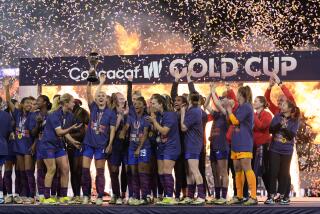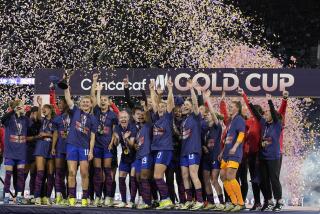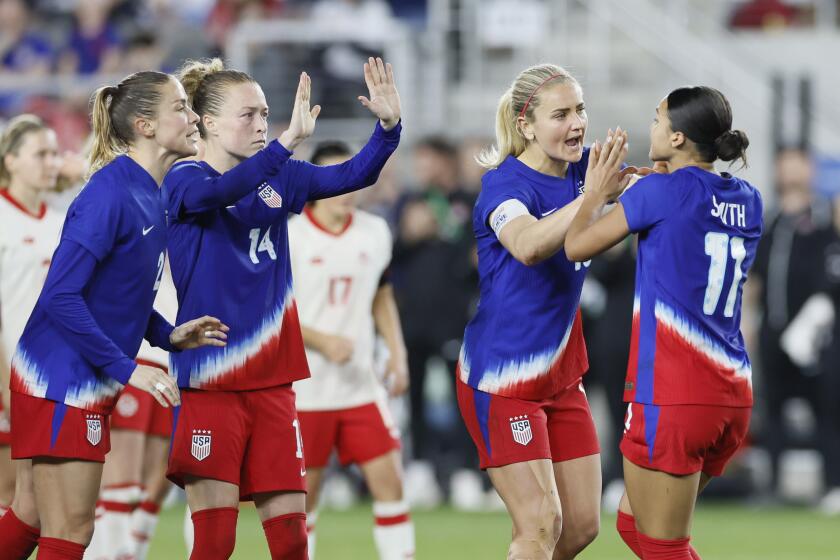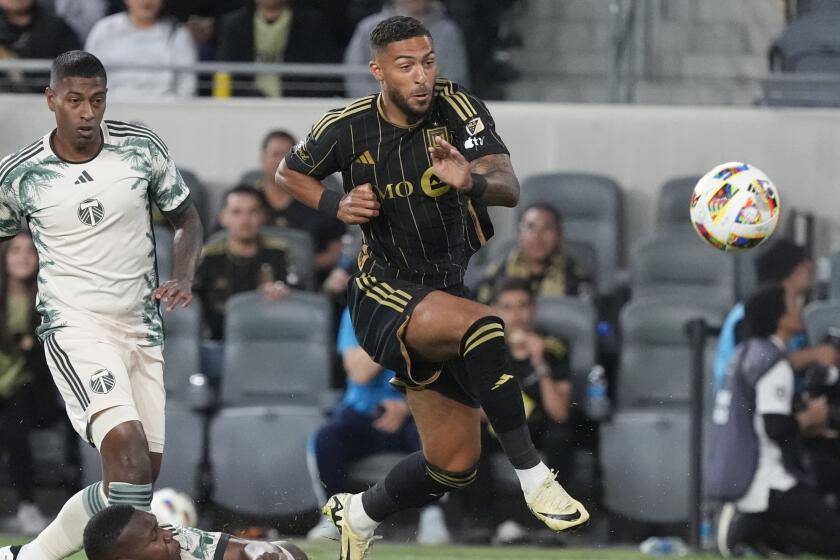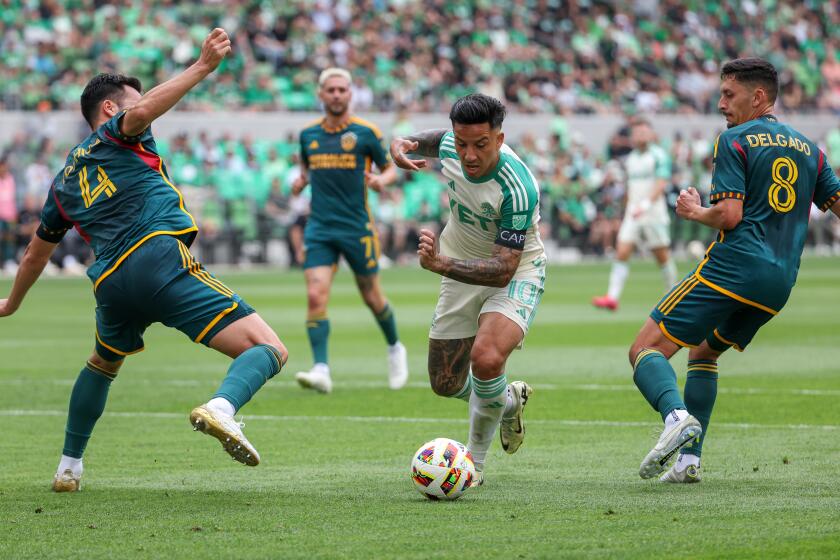Women’s World Cup final: U.S. and Netherlands coaches making history
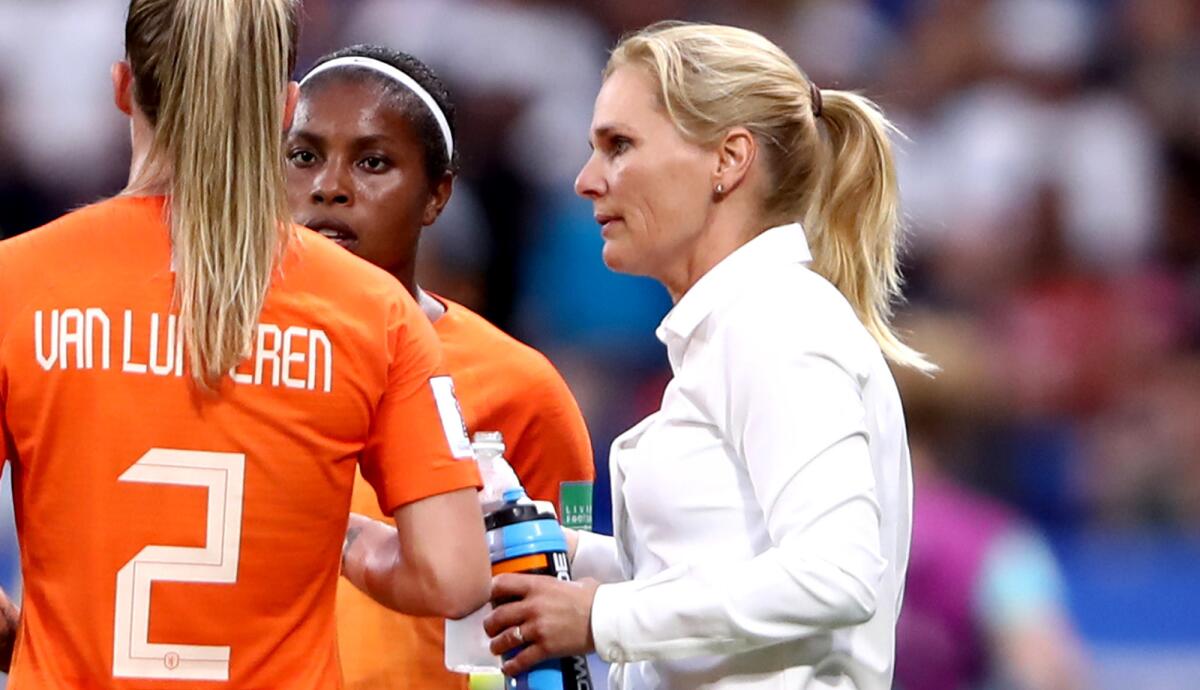
Sarina Wiegman was an accomplished soccer player when she met Anson Dorrance, coach of the U.S. national team, at a long-ago tournament in China. The two began talking and before they had finished Dorrance invited her to come play for his college team at North Carolina.
The opportunity to play big-time soccer opened Wiegman’s eyes and arguably changed the direction of women’s soccer in the Netherlands.
“The American culture is very much about hard work,” Wiegman said. “And that’s different in our culture. If you want to win from our country like this, well, you need to fight.”
Wiegman, 49, has infused her national team with the fighting spirit she learned in the U.S., and it’s helped her coach the Netherlands to both a European championship and a spot in the Women’s World Cup final in the last 30 months. The Dutch had never won a major tournament and qualified for only one World Cup before Wiegman took over in the winter of 2017.
A move to the U.S. also changed U.S. Coach Jill Ellis’ life. Growing up in England as the daughter of a soccer coach, she was unable to play the game because it was banned for girls. Then the family moved to Virginia, where Ellis captained her school team to a state title and her club team to a U-19 national championship.
“I never thought I’d end up coaching,” said Ellis, 52, who can become the first woman manager to win back-to-back World Cup titles and the first of any gender to do it since Italy’s Vittorio Pozzo in 1938.
“It wasn’t the plan. Just the passion and then you find out you love what you do, that’s kind of what I decided to do as far.”
On Sunday the two women, who left their homelands for life-altering experiences just 300 miles apart, will face off in a Women’s World Cup final that is perhaps most notable because it’s just the second ever to feature female coaches in front of both benches.
“It’s a wonderful statement. There aren’t enough of us in the game, in coaching,” said Ellis, who is unbeaten in 13 Women’s World Cup games. “We need more women in coaching, 100%. There’s a lot of young women or former players that want to coach.
“To see coaches doing it is really important.”
It’s a fitting conclusion to a tournament in which women’s empowerment has been a major theme. The U.S., the defending champion, arrived in France three months after filing a lawsuit against its own federation, charging gender discrimination in pay and working conditions. Since the last Women’s World Cup four years ago, teams from Chile, Argentina, Australia, Nigeria, Canada, Norway and the Netherlands have also engaged in campaigns for better treatment from their national federations.
And though progress has been slow in coming and hasn’t gone nearly far enough, the change that has taken place has been undeniable.
Although just nine of the 24 teams in this Women’s World Cup were coached by women, five of those teams made the quarterfinals, and two women coaches are in the final for the first time since 2003. Wiegman hopes that’s the start of a real transformation in coaching ranks long dominated by men.
Sign up for our weekly soccer newsletter »
“It’s good that women get the opportunity to develop. As players, as coaches or in other parts of football and in the society,” she said. “But I also think the women need to have the guts to make choices and take risks to go for higher positions. What we need to do as women is show that we have qualities.”
Aside from the gender of the two coaches, there’s little the U.S. and the Netherlands have in common entering Sunday’s game. Because while both teams head into the final undefeated, the U.S. has blitzed the competition while the Dutch are limping to the finish line.
Wiegman’s team has scored only 11 goals in the tournament, getting more than two in a game just once. The U.S. scored 13 times in its first game and is averaging four a game; with two more in Sunday’s final, it will break the record for most goals in one tournament.
While the Netherlands is playing in its first final, the Americans are in the championship game for a third straight tournament. The U.S. is unbeaten in its last 16 Women’s World Cup games and has won its last 11; the Dutch have played in just 10 games all-time in the tournament.
The U.S. is also expected to have Megan Rapinoe back after she sat out last week’s semifinal because of a hamstring issue. And while the U.S. has never trailed in the tournament, scoring in the first 12 minutes of all six games, the Dutch needed a 90th-minute penalty kick to win one knockout-round game and extra time to win its semifinal.
Dutch goalkeeper Sari van Veenendaal has been outstanding, however, allowing just one goal in the last 330 minutes.
“She was really incredible this whole tournament,” defender Dominique Bloodworth said. “She’s the hero for our team.”
The Dutch will need more than Van Veenendaal on Sunday, especially since forward Lieke Martens, a former world player of the year, hobbled out of the semifinal at halftime with a toe injured while celebrating her game-winning goal over Japan. Wiegman said it’s uncertain whether Martens can play, which could leave her relying on the fighting spirit she picked up in her one season at North Carolina, where she played alongside U.S. national players such as Mia Hamm and Kristine Lilly.
“Being in the States myself, I think that definitely had an impact,” she said. “You just notice that playing together you can achieve much more. You can see that in the States.
“That’s an interesting combination, the team spirit and the individual fighters. You’re never playing alone. You’re playing as a team.”
kevin.baxter@latimes.com | Twitter: @kbaxter11

